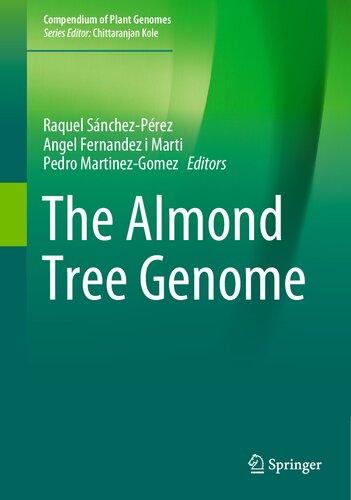

Most ebook files are in PDF format, so you can easily read them using various software such as Foxit Reader or directly on the Google Chrome browser.
Some ebook files are released by publishers in other formats such as .awz, .mobi, .epub, .fb2, etc. You may need to install specific software to read these formats on mobile/PC, such as Calibre.
Please read the tutorial at this link: https://ebookbell.com/faq
We offer FREE conversion to the popular formats you request; however, this may take some time. Therefore, right after payment, please email us, and we will try to provide the service as quickly as possible.
For some exceptional file formats or broken links (if any), please refrain from opening any disputes. Instead, email us first, and we will try to assist within a maximum of 6 hours.
EbookBell Team

0.0
0 reviewsThis book brings together the latest information on almond genomics and transcriptomics, with a particular focus on cutting-edge findings, tools, and strategies employed in genome sequencing and analysis with regard to the most important agronomic traits.
Cultivated almond [(Prunus dulcis (Miller) D. A. Webb, syn. Prunus amygdalus Batsch., Amygdalus communis L., Amygdalus dulcis Mill.)] is a tree crop producing seeds of great economic interest, and adapted to hot and dry climates. Domesticated in Southeast Asia, its small diploid genome and phenotypic diversity make it an ideal model to complement genomics studies on peach, generally considered to be the reference Prunus species. Both represent consanguineous species that evolved in two distinct environments: warmer and more humid in the case of peach, and colder and xerophytic for almond. The advent of affordable whole-genome sequencing, in combination with existing Prunus functional genomics data, has now made it possible to leverage the novel diversity found in almond, providing an unmatched resource for the genetic improvement of this species.